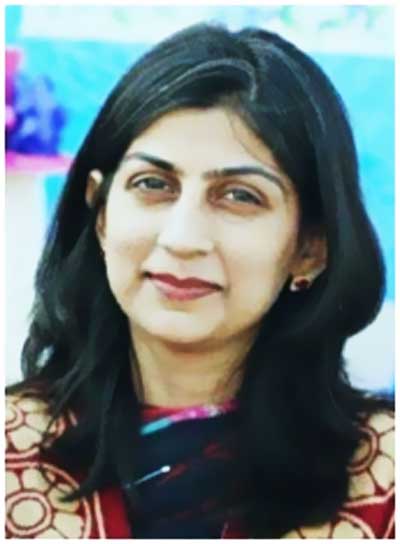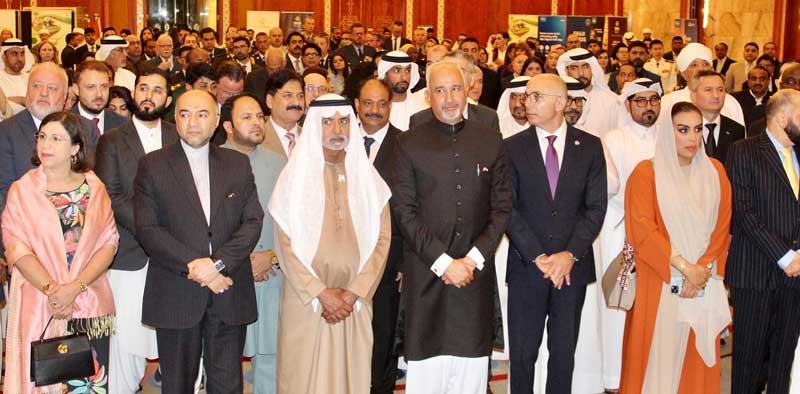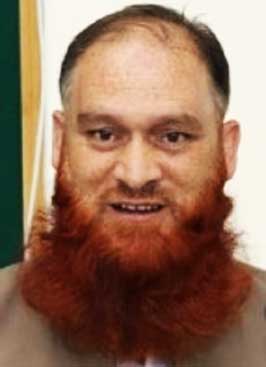Recently, I had the opportunity to attend the USAID’s Breaking Barriers through Diversity and Inclusivity Conference which was organized in partnership with the National Rural Support Programme (NRSP) and the All Pakistan Women Universities Consortium (APWUC. The conference aimed to promote social inclusion of all underrepresented communities including persons with disabilities while giving them equal opportunity to participate in the development Agenda of Pakistan. The event brought together thirteen MSIs from the United States and eighteen Women Universities from across Pakistan to facilitate joint efforts in addressing pressing issues. Key themes of the conferenceincluded the Green Alliance (covering climate, water, agriculture, AI, and climate-smart technology), entrepreneurship, anti-corruption measures, localization, and women empowerment in both professional and academic spheres, climate change challenges, and fostering collaboration among stakeholders.

I didn’t realize how unique and significant this opportunity was until I had the conference agenda in my hands. The conference agenda was also available in Braille which, to me, was very thoughtful. In addition to this, sign language interpretation was provided throughout the four-day conference. In the past, I have attended several seminars, training workshops, and conferences where differently-abled persons were invited in the name of inclusion. However, I must admit that this is the first time I have actually seen the acknowledgment of their presence, not only by having the conference agenda available in Braille, but also by witnessing how enthusiastically the specially-abled individuals participated at every phase.
To me, before anything else and before attending any other session of the conference, this stood out and had to be acknowledged. It was also when I learned that, according to the World Health Organization, the disability community is the largest minority group in the world: around 10% of the world’s population, or 650 million people, live with a disability, making the disability community the largest minority group in the world.
Shiraz Ashraf, Senior Advisor for USAID and the primary organizer and focal person for the conference, gave a big shout out to the presence of individuals with special needs or those who are specially-abled at the conference. He urged all education leaders, students, and faculty members to thoroughly assess and inquire about the accessibility of any future conferences they attend. He emphasized that participation should be declined unless organizers confirm genuine inclusivity, which all attendees deserve.

The motivation driving these initiatives is to promote the idea that individuals with disabilities are not limited by their differences, but rather possess unique abilities that should be celebrated. It underscores the importance of providing them with the necessary equipment and resources to fully participate and contribute in an increasingly globalized and digital world.
The inclusion of persons with disabilities (PWDs) in society can be achieved through various means. Along with social inclusion, there’s access to education, employment and healthcare, providing them social protection, community engagement and creating awareness and change in our attitudes which could bring about the great positive change and make this world a better place for these gifted people. By implementing these strategies about PWDs’ needs and capabilities, societies can foster greater inclusion and ensure that PWDs have equal opportunities to participate and contribute to all aspects of social, economic, and political life.
Speaking about the social inclusion of people with special needs, one of the greatest inspirations, Stephen Hawking, serves as a prime example of what individuals can achieve if they are given opportunities for social inclusion, recognition, and the chance to showcase their unique abilities. Unfortunately, despite increased access and awareness over time, as a society, we have sometimes marginalized the acknowledgment of such gifted individuals. Sitting at the conference and observing how these exceptional yet challenged individuals wholeheartedly and enthusiastically participated, I couldn’t help but wonder if we could discover another Stephen Hawking, Helen Keller, Frida Kahlo, or John Nash, each with their own compelling story, to serve as an inspiration if only given the opportunity. With this in mind, I had the honor of engaging in discussions and exploring the perspectives and emotions of some of these remarkable individuals who attended the conference.
Safia Shaheed, a visually impaired woman from the Education department of Fatima Jinnah Women University, expressed that this was the first time in her academic journey where she felt safe, supported, and not singled out. Similarly, her friend Alishba, also visually impaired, shared her enthusiasm for rooftop gardening and found the concept inspiring enough to consider implementing it herself.
In addition to Safia and Alishba, several other individuals with various injuries and disabilities remarked on the welcoming atmosphere, emphasizing the freedom to express themselves and engage in dialogue – a sense of inclusion they had not experienced previously.
While talking to the faculty members of a couple of universities who managed to take this commendable step and made it possible for their special-need students to attend this conference, they talked about the process where not only they had to convince the parents and get their consent but also to make it smooth and feasible for the participants at the conference.

Dr. Baqir Hussain from Rawalpindi Women University expressed his gratitude for the opportunity to facilitate the involvement of these students in such an enriching experience. However, he mentioned that they encountered several challenges when approaching parents about their children’s participation. Many parents expressed concerns regarding the safety and accommodation of their children, especially in unfamiliar environments. Furthermore, it was essential to take extra care in preparing for the students’ arrival. This included arranging accessible transportation, ensuring the venue was equipped with necessary facilities such as ramps and accessible restrooms, and providing support staff trained to assist students with various needs. Additionally, they worked closely with the event organizers to create inclusive activities and ensure that every student felt welcomed and included.
Dr. Huma from Fatima Jinnah Women University acknowledges USAID’s great initiative and immense support in order to facilitate the unique social inclusion of the gifted community. While talking about the challenges she faced about managing their presence at the event, she said that seeing the students’ joy and enthusiasm during the event made every effort worthwhile. Their participation not only enriched the experience for all attendees but also served as a powerful reminder of the importance of accessibility and inclusivity in all aspects of our work. Moving forward, it is crucial to continue advocating for the inclusion of special needs students in such events and to further educate parents and communities about the benefits of participation. She was optimistic that by working together, we can create more opportunities for all students to thrive and contribute to their fullest potential.
The conference encompassed numerous noteworthy aspects that I am eager to pen down. However, for me, this unparalleled level of inclusivity stood out and should not go unnoticed or unacknowledged. So, this one is dedicated to the outstanding vision and tireless efforts of the USAID team, who successfully showcased the essence of inclusivity and diversity through this groundbreaking rather game-changer conference. It is high time we prioritize ‘collaboration’ over ‘competition’ and recognize the significance of including and involving all communities to foster a healthy and thriving society.




